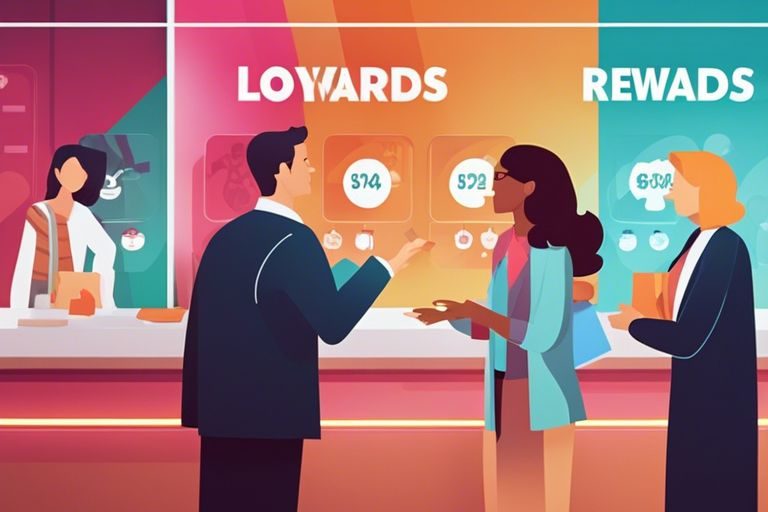Loyalty Rewards – Are They Fair?

Indubitably, loyalty rewards programs have become a staple in many industries, from airlines to coffee shops. While these programs offer enticing perks and benefits to loyal customers, the question of fairness remains a topic of debate. In this blog post, we will delve into the benefits and potential drawbacks of loyalty rewards programs, and explore whether they truly provide equal opportunities for all customers. We will also discuss the ethical implications of these programs and what businesses can do to ensure fairness for all their patrons.
The Concept of Loyalty Rewards
A loyalty reward is a benefit that a company offers to its customers in exchange for their continued support and repeat business. These rewards can come in various forms, such as discounts, free products, or exclusive access to special events. The concept of loyalty rewards is designed to cultivate a strong bond between the company and its customers, with the hope of fostering long-term relationships and encouraging repeat purchases.
History and Evolution
Evolution of loyalty rewards can be traced back to the 18th century when American retailers began offering copper tokens to their customers, which could be redeemed for future purchases. Over time, this concept has evolved significantly, with the introduction of loyalty cards, points-based systems, and digital reward programs. The idea has expanded beyond retail to include industries such as hospitality, travel, and finance, with companies of all sizes recognizing the importance of rewarding customer loyalty.
It’s fascinating to see how the concept of customer loyalty has developed and adapted to meet the changing needs of both businesses and consumers. Today, loyalty rewards programs are a common feature of the modern consumer experience, with many people actively seeking out brands and businesses that offer such incentives. It’s clear that the evolution of loyalty rewards has had a profound impact on consumer behavior and brand loyalty.
The Bright Side
Clearly, loyalty rewards programs have their drawbacks and controversies. However, there is also a bright side to them. In this chapter, we will explore the positive aspects of loyalty rewards and how they can benefit both businesses and customers.
Perks of Being Loyal
An often overlooked benefit of loyalty rewards is the perks that come with being a loyal customer. Many businesses offer exclusive discounts, freebies, and access to special events for their most dedicated patrons. These perks can make a loyal customer feel appreciated and valued, fostering a sense of belonging and connection to the brand. Additionally, loyal customers may receive personalized offers that cater to their specific preferences and purchasing behavior, creating a more tailored and enjoyable shopping experience.
Success stories of customers reaping the rewards of their loyalty are not uncommon. Many individuals have saved significant amounts of money or received high-value rewards through their consistent patronage of a particular business. In some cases, loyal customers have even been given special recognition or opportunities that are not available to the general public. These stories serve to highlight the potential benefits of staying loyal to a brand over time, reinforcing the notion that loyalty rewards can be worth the investment of time and money.
Loyal customers who have shared their success stories often mention the importance of staying engaged with the brand and taking full advantage of the rewards program. By actively participating in promotions, staying informed about new offers, and providing feedback to the business, loyal customers can maximize the benefits of their loyalty. This level of engagement can lead to even greater rewards and opportunities, solidifying the mutual benefits of a strong customer-business relationship.
The Not-So-Great Side
For many customers, loyalty rewards programs are a great way to save money and earn special perks. However, there is a not-so-great side to these programs that often goes unnoticed. In this chapter, we’ll explore the common criticisms and unheard voices related to loyalty rewards programs, shedding light on some important issues.
Common Criticisms
Side by side with the benefits of loyalty rewards programs, there are some common criticisms that are worth considering. Some customers argue that the requirements for earning rewards are often too high. They feel that they end up spending more money to qualify for rewards, negating the purpose of saving. Others complain about the restrictions and expiry dates associated with the rewards, feeling pressured to use them within a limited time frame. These concerns raise questions about the fairness and transparency of the programs.
On the side of the companies, there are also criticisms about the effectiveness of loyalty rewards programs. Some businesses find it challenging to retain customers solely through rewards, as customers may still be attracted to competitors’ offerings. This raises questions about the long-term sustainability of these programs and whether they truly foster loyal relationships with customers.
Unheard Voices
With any loyalty rewards program, there are often unheard voices that are not taken into account. It’s important to consider the perspective of customers who may not have access to the same level of disposable income as others, making it difficult for them to meet the spending requirements for rewards. Additionally, some customers may not be comfortable with sharing personal information to join these programs, raising privacy concerns that are often overlooked.
For instance, individuals with lower incomes and those who prioritize their privacy may feel excluded from the benefits of loyalty rewards programs, further perpetuating inequality in access to savings and perks. It’s crucial to recognize and address these unheard voices to create more equitable programs.
Making It Fairer
After exploring the potential unfairness of loyalty rewards, it’s important to consider how we can make the system fairer for all parties involved. This is essential for building trust and maintaining a positive relationship between businesses and consumers.
Suggestions for Improvement
An effective way to make loyalty rewards fairer is to implement a tiered rewards system based on customer loyalty. For example, all customers can earn basic rewards, but those who demonstrate consistent loyalty over time can access higher-tier rewards. Additionally, businesses can consider offering alternative rewards such as personalized experiences or exclusive access to events, rather than focusing solely on discounts and freebies.
Another suggestion for improvement is to provide transparent and equal opportunities for all customers to access rewards. This means ensuring that all customers have access to the same information and opportunities to earn rewards, regardless of their initial spending or status. Implementing a clear and fair rewards structure will help to build trust and loyalty among all customers.
The Role of Consumers
Improvement in loyalty rewards also depends on the active participation and feedback of consumers. By voicing their preferences and concerns, consumers can influence businesses to create more equitable and appealing rewards programs. With a collective effort from consumers, businesses can develop loyalty programs that are more inclusive and beneficial for everyone involved.
With consumer advocacy and support, businesses can be encouraged to create loyalty rewards that prioritize fairness, inclusivity, and value for all customers. This collaborative effort can lead to positive changes in the way loyalty rewards are designed and offered, ultimately benefiting all parties involved.
To wrap up
Considering all points, loyalty rewards can be fair if they are transparent and offer real value to customers. It’s important for businesses to communicate clearly about their loyalty programs and ensure that all customers have an opportunity to participate and benefit. By listening to customer feedback and regularly assessing the fairness of their rewards programs, companies can build trust and demonstrate a commitment to fairness. Ultimately, loyalty rewards should be a win-win for both businesses and their loyal customers.
FAQs:
Are loyalty rewards programs universally beneficial for customers?
Loyalty rewards programs offer perks, discounts, and special events, but criticisms exist, with concerns about high spending requirements and restrictions on rewards.
How did loyalty rewards programs evolve over time?
Loyalty rewards trace back to the 18th century, evolving from copper tokens to modern-day systems, including cards and digital programs across various industries.
What challenges do businesses face in sustaining loyalty through rewards?
Some businesses find it challenging to retain customers solely through rewards, raising questions about long-term sustainability and true customer loyalty.
How can loyalty rewards programs be more inclusive for all customers?
Implementing tiered rewards based on loyalty, offering alternative rewards, and ensuring transparent and equal opportunities can enhance inclusivity.
What role do consumers play in improving loyalty rewards programs?
Consumer feedback and active participation are crucial; voicing preferences can influence businesses to create more equitable and appealing rewards programs.
Recommended Posts

Legal Nuances of Operating an Online Casino
May 17, 2024

Feedback – What Players Want from Bonuses
May 17, 2024

Enhancing Payment Security with Blockchain
May 17, 2024



